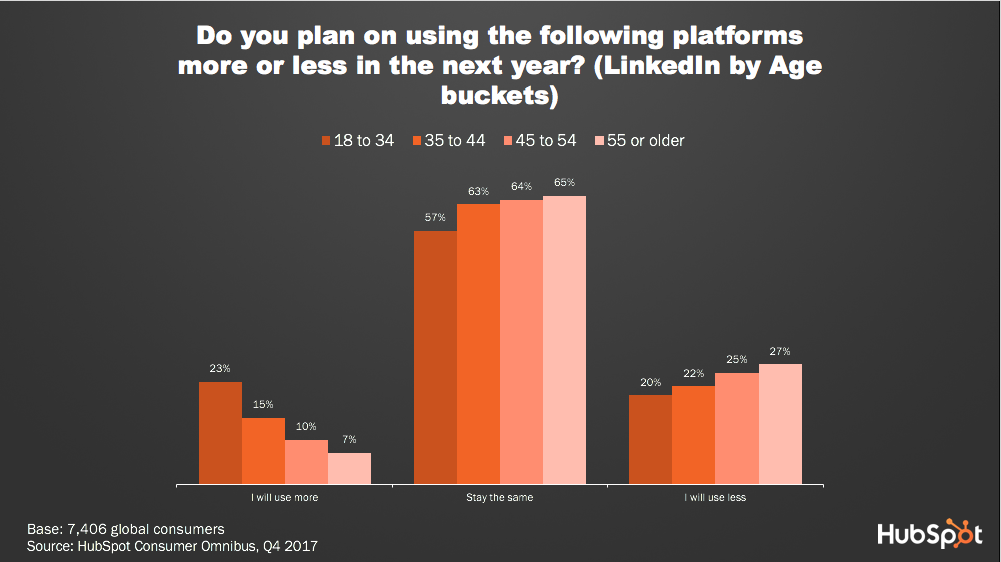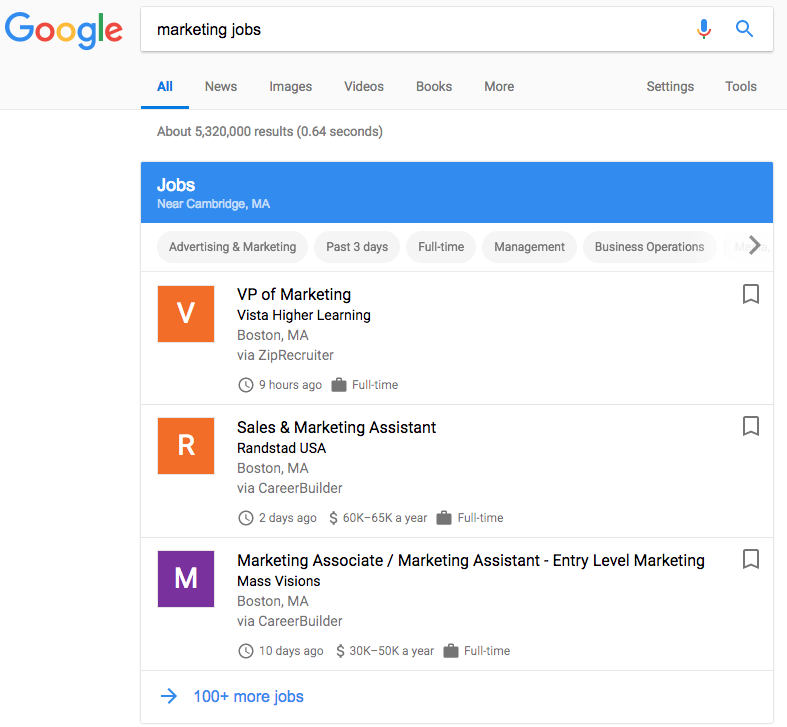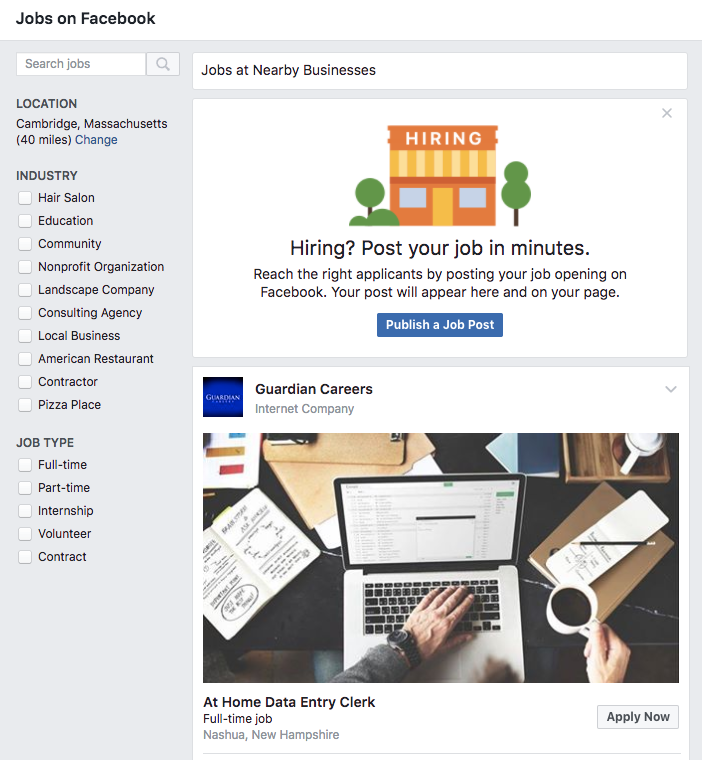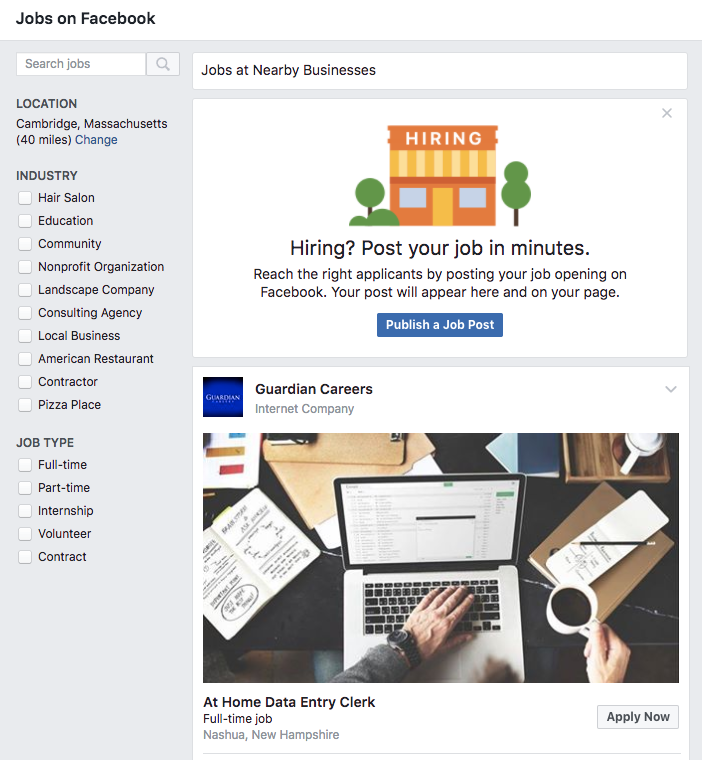Built With Users (and LinkedIn) In Mind?
The launch comes at an interesting time when Facebook has been making a series of moves to promote more content from a user’s own personal network — more than that from Pages.
The development also comes on the heels of recent predictions that Facebook will lose 5.8% of users between 18 and 24 in 2018. At the same time, HubSpot’s own research has indicated plans to increase the use of LinkedIn among a similar demographic — ages 18 to 34.

But Facebook didn’t necessarily build the Jobs features with one subset of users in mind — even if LinkedIn shows signs of growing popularity among a population that coincides with the same one where Facebook is predicted to see a loss.
Instead, says HubSpot Social Media Campaign Associate Henry Franco, this move is the latest in a series from Facebook to address the loss or disinterest of any users — “a sign,” he says, “that Facebook lost site of users and had been way too focused on advertisers” and is continuing efforts to both address and remedy that issue.
And while the new Jobs feature does carry benefits for Page owners, it does introduce a new way for users who are seeking work that isn’t traditionally listed on business-heavy networks like LinkedIn.
“While candidate information might not be as rich as it is on LinkedIn, Facebook definitely has a more active user base and serves a much easier way for businesses to get jobs in front of potential applicants,” says Franco. “I expect companies will find it much easier to hire entry-level or low-skill jobs on Facebook, whereas for higher-skilled jobs or ones that simply require more experience, LinkedIn will provide a deeper pool of candidates.”
A Crowded Market
The new Jobs feature also signals a key change in the way people look for and apply for jobs. In 2017, “Google for Jobs” premiered, in which job seekers could type in search criteria like “jobs in Boston” or “marketing jobs” to see listings displayed right in the general search engine results page (SERP).

Both Facebook and Google have been making changes to shape the way people discover, consume, and engage with content — and to prevent them from doing so in a way that navigates them away from either site. Facebook, for example, modified its algorithm at one point to favor native content, like Live video, that people could do without leaving the network.
Google has been moving in a similar direction, as indicated by a recent announcement that AMP features will be coming to Gmail in a way that allows users to complete email-related tasks — managing subscriptions, RSVPing to non-Google-Calendar events, and scheduling appointments — without leaving their inboxes.
Searching for jobs, says Franco, is just the latest integration to that trend, which he predicts could significantly cut into traffic previously earned by existing job listing sites.
“It’s interesting that the job posting market is becoming so crowded here,” he says. “It builds out not only the business experience, but the candidate one, too.”
Featured Image Credit: Facebook



